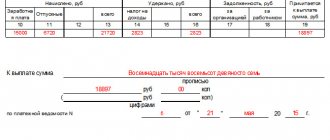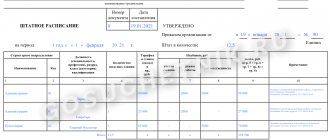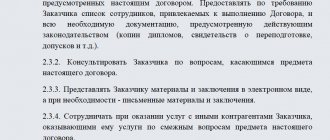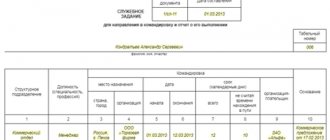What are the reasons for filing a complaint against a manager?
The primary reason why employees file complaints is a violation of labor rights, which are enshrined in the Labor Code of the Russian Federation. This is exactly the moment when management does not comply with the terms of the contract concluded with the employee and the Labor Code. Such violations include:
- regular lack of payment of wages
not providing an employee with leave- overtime that is not recorded by management in any way and is not compensated by wages
- refusal to pay sick leave funds when such an obligation is specified in the contract
- obstacle to promotion when there is every reason to do so
- dismissal for reasons not related to the work process or violation of labor regulations and contracts
A collective statement, which is drawn up by several employees, has particular weight. However, it is initially necessary to understand that there must be legal correctness on the part of the staff. Otherwise, it will affect the reputation of everyone who signs the document, and as a result will play a decisive role in the next interview.
A secondary reason, which in no way detracts from its significance, is the violation of civil human rights as such. They are not bound by a contract or labor code, but are clearly enshrined in the constitution. So, these include:
- disrespectful attitude: rudeness, sexual harassment, use of obscenities in speech
- threats causing physical or moral harm
- assault
- direct insults to staff or employee's family
Video with the rules for filing a complaint:
It is worth noting: if the complaint is not accepted, you can directly file an application with the court. This will also affect the company, but the primary dispute will be between the employee and the boss.
When and to whom can employees complain?
Employees can file a complaint against management in the following situations:
- Personnel are forced to do work that is not specified in the employment contract, job description, or to work outside of working hours.
- The employer does not comply with payment deadlines, refuses to pay sick leave, and pays “gray” wages.
- The manager is rude to the staff and insults them.
- Labor safety rules are not observed at the workplace, for example, they do not provide special clothing, personal protective equipment, or safety equipment.
- The orders of higher authorities are violated.
The list does not show all situations, but only the most common ones.
Employees can complain about management to their superiors, the police, the court, the tax office, the prosecutor's office, or the labor inspectorate.
Where is the document submitted?
You must submit your appeal using the “ladder” principle. It involves submitting a document not to the owner of the company, but to someone who is higher than the management. If the requirements are not met - even higher.
Despite the fact that the standard procedure involves sending it immediately to the owner of the company, it is worth using a more relaxed method. Often this is enough.
The legislative framework
The complaint process is fully regulated by a specific list of documents:
- Labor Code of the Russian Federation from 3.12.01
- Federal Law No. 294
- Government Order No. 476
- Federal Law No. 59
However, the government can make appropriate changes that may affect (add or subtract) the content of the legislative framework.
Features of the complaint
All features are related to what kind of organization it is - private or public. In the first case, if the company is private and has a specific owner, then the complaint is filed in his name. However, this does not mean that the owner will personally consider it: usually this is done either by the board of directors or by lawyers appointed for this purpose. One way or another, everything depends on the hierarchy.
The success of a complaint directly depends on its content. It is important to list everything about the violation of rights as specifically as possible - the inspection officer must clearly understand what happened. We must also rely on the fact that all commercial companies are looking for profit, which means that they do not need ineffective management.
The chances of a complaint being satisfied increase significantly if the complaint justifies the benefit for the company after the dismissal of the boss.
In the second case, when the company is state-owned, there is no need to justify the potential benefits when dismissing an employee. It is only necessary to objectively and as clearly as possible describe the situation that occurred. This is required so that the relevant services can conduct a thorough check and make an informed decision based on it.
What should it include
The appeal includes four main parts (Table 1).
| Name | Description |
| Contact form | It is necessary to indicate to whom and from whom the appeal is sent |
| Introduction | Listing of positions with mandatory indication of the name of each employee |
| Main part | The essence of the conflict is described. It should be written as detailed and succinctly as possible at the same time - this will allow a more objective assessment of the complaint from a distance |
| Requirements | The final stage is where the applicant indicates his requirements in relation to the management. They must also be clearly formulated and fully justified. |
You should also not forget about document attachments, which often require attaching a number of documents. In special cases, an application may also be rejected if a number of important documents are missing.
Video about the intricacies of filing a complaint to the authorities:
Where to complain about your boss
Before filing a complaint, you need to decide who to file it with.
Be very careful about the addressee of the complaint. This could be the head of a department, the head of an organization, or a supervisory body. The correct choice of the addressee is the key to the promptness of consideration of the complaint and the quality of its consideration.
Don’t forget about the “ladder” principle – complaining one by one from a lower-ranking official to a higher-ranking one. You should not immediately complain to the governor or president. It would be most effective to write a complaint in the following order:
Each situation is individual - do not hesitate to ask questions:
- in comments;
- in the online consultant window at the bottom of the page ↘️
- in the form at the bottom of the page.
- immediate supervisor (manager);
- head of the organization (director);
- supervisory (control) body or service;
- prosecutor's office
We offer our sample complaint, in which we tried to take into account all typical situations. You can correct and supplement the specified sample - the complaint does not have a mandatory prescribed form.
The information contained in this article does not apply to relations related to the protection of consumer rights.
Before writing and filing a complaint against your boss, we recommend that you:
- receive free legal advice on civil rights, which will save your time;
- read the following materials on our resource: how to write a complaint correctly and how to submit a complaint correctly.
Compilation rules
Let's briefly look at the basic rules that must be followed when submitting:
- You cannot use profanity. Personal insults are also not allowed. If these requirements are ignored, the application will not be accepted, and the applicant is deprived of the right to resolve the conflict pre-trial.
The text should be succinct. There is no need to write a long story; it is worth briefly describing the main points of the conflict and what is wrong with the accused party. It is also not recommended to use expressions and phrases that are interpreted ambiguously.- Speech must be literate. All syntactic and punctuation rules must be observed. This will increase the speed of consideration of the complaint.
It is always worth addressing the complaint correctly - in accordance with the hierarchy. If the administrator is the boss, then you need to complain to the director, and not the owner of the company, etc. This will not only increase the speed of processing the request, but will also allow the issue to be resolved faster.
Basic rules for filing a complaint against management
Let's consider the basic principles of a complaint - registration. Full information regarding how the application should be completed is contained in Federal Law No. 59. Ignoring the registration rules is the primary reason why inspectors refuse to consider the application.
So, first of all, the home page. The upper right corner is occupied by information:
- company name
- boss details
- when registering a collective complaint - the corresponding mark
The word “Complaint” should be located in the middle of the sheet.
Now the contents of the main part:
- reason for filing a complaint: you need to provide all the details of how the rights violation occurs
- the name of the complainant or the names of those who have already suffered a civil rights violation
- indication of the date of each recorded violation
The conclusion of the main part implies a statement of the measures required by the employee in relation to his superiors. Usually this is a change in management or compensation for harm.
The final part of the document contains all the necessary documents (they are attached either in the application itself or separately), as well as the signature of the applicant. If the complaint is collective and there are too many signatures, they can be attached as a separate document.
Standard design rules
Complaints can be individual or collective. The last variety gives the maximum effect. Then the sender becomes all members of the team who were dissatisfied with the boss’s action. Or, several employees whose rights and interests were directly violated are appointed as the main compilers.
The standard form of the document contains the following information:
- Company name, in full form.
- Full name of the manager on whose part the violation was committed.
- The position of the employee, with an exact indication of the full name.
- Reasons for drawing up the document. What rights are violated and how?
- Description of the essence of the problem.
- Date when the violation was committed.
- A requirement regarding what action must be taken by management.
- Date of the application.
- Applicant's signature.
The paper may be accompanied by additional documentary evidence. If necessary, it is permissible to refer to the testimony of witnesses.
How to write a complaint correctly, see here:
Collective complaint
The main distinguishing characteristic of a collective complaint is its mass nature. It is compiled and submitted by all employees who work at the enterprise. Such complaints have greater legal weight and in most cases they are paid close attention. They also initially reject the subjectivity of the complaint, because the degree of trust in the entire staff is many times higher.
If we take into account government bodies, then complaints to them are submitted to the relevant authorities and have a completely different priority - special consideration is carried out. As a rule, the consequence is a parallel inspection of the company and management by several authorities.
However, although collective complaints are noticed much more readily than individual ones, the group of people who appeal to the authority must choose a leader. She needs a person who will represent their interests and also officially cooperate with the services. The procedure after filing remains standard: an inspection is carried out, the reasons or sources of dissatisfaction are examined, and then a final decision is made.
Labor Dispute Commission
The commission is another element of internal control that resolves labor disputes between management and employees of the organization. It is formed from an equal number of representatives of the parties to the conflict on the initiative of employees or the employer and has sufficient powers to consider and resolve the problem.
The decision made in the case has legal force and is subject to voluntary or compulsory execution. In the latter case, the implementation of the resolution is carried out by bailiffs. At the same time, a party dissatisfied with the resolution of the conflict can challenge it in court.
A complaint to the commission is sent no later than three months after the occurrence (detection) of an unlawful act, and only after a preliminary contact with the offender.
The application is made in writing according to the following format:
The commission should not take more than 10 calendar days to consider the complaint. The decision is made by majority voting and will be implemented within 3 days.
Appeal to senior management
When filing a complaint, the first consideration will be to send it to higher management. Those who stand above the boss and determine the policy of the entire company.
The procedure for sending such a complaint involves using the legal address of the company (central office), as well as drawing up an application addressed to the general director. Thus, the sent application (often by mail) will arrive at the office. It will be reviewed by lawyers and deputy directors. If the complaint really has a strong basis, the applicant will be sent a response informing them of the next course of action. Otherwise, the complaint will be rejected, but the applicant will be sent a letter and notified of this decision.
In cases where there is no response from management, it is necessary to contact government authorities. Their appeal will be sent to the office with a priority mark and will definitely be considered. All subsequent actions, including clarification of information about the processing of the application, are also carried out through the government agency.
Rostrud
The Federal Service for Labor and Employment is the highest body of state supervision over compliance with labor legislation. It unites and heads state labor inspectorates in the constituent entities and interacts with other executive authorities, local governments, the prosecutor's office and trade union organizations.
The first step in appealing against unlawful acts of a boss within the Federal Labor Inspectorate (FIT) should be the State Inspectorate in the subject (GIT). The list of territorial GITs and their official websites can be found on the Rostrud portal, following the link https://www.rostrud.ru/rostrud/territorialnye-organy/.
The websites of state inspectorates provide their contact information - addresses and telephone numbers. You can use them to send a complaint and check with specific State Inspectorate for the details of receiving complaints.
You can complain to the Federal Service for Labor and Employment:
- during a personal visit to the reception office of Rostrud;
- through the electronic “Public Reception”;
- using the Internet resource “Online Inspection”.
Personally
A complaint against management can be submitted during a personal visit to the Rostrud building at the address Moscow, Myasnitskaya street, 40, building 16.
There are several submission channels for citizens’ appeals:
- Through service specialists. They receive appointments on weekdays according to the following schedule: Monday, Wednesday, Friday - from 10:00 to 13:00 and Tuesday, Thursday - from 14:00 to 17:00.
- Directly to the leadership of Rostrud. Officials of the apparatus accept requests by appointment, which is carried out at the link https://www.rostrud.ru/room/obrashcheniya-grazhdan/grafik-priema/ (at the bottom of the page, under the table with the reception schedule for heads and deputies of the service, select “Registration for a personal reception with the head of Rostrud and his deputies").
- In a specialized place for receiving complaints. It is a room equipped with a stand with current legislative acts (the Constitution and the Federal Law “On the procedure for considering appeals from citizens of the Russian Federation”), a schedule and procedure for personal reception, sample applications and forms for writing a complaint. The room is located in the building of the central office of Rostrud, to the left of the entrance.
Additional information of interest can be obtained by calling the helpline (call on weekdays - from 9:00 to 18:00 from Monday to Thursday and from 9:00 to 16:45 on Friday, except for a break from 12:00 to 13:00).
Questions related to the reception and consideration of applications can be clarified by telephone.
"Public Reception"
The electronic service “Public Reception” on the official website of Rostrud allows you to send an application to the government agency to conduct an unscheduled inspection of the boss’s activities or, if there is doubt about his guilt, to identify the offender and bring him to administrative responsibility.
A citizen can make such a request only if he has an active account on the State Services portal. The need for this is due to the content of clause 3 of Art. 10 of Federal Law No. 294-FZ. Its essence is as follows: an application for an unscheduled inspection of the stated facts can be accepted only after the applicant has been authorized in the identification and authentication system. Registration in this system (USIA) is required to create an account on the government services website, through which the above requests are submitted.
After authorization in the ESIA, the employee is offered a standard electronic form for entering the following data:
- Subject of the appeal.
- Text of the complaint.
- Last name, first name, patronymic, email or postal address of the applicant.
- Name of the employing organization, its actual and legal address, identification number or main state registration number.
- Applicant's position.
- Information about the boss.
The link to enter the Internet reception is https://www.rostrud.ru/room/obrashcheniya-grazhdan/kremlin/.
Email address for submitting appeals by email - [email protected]
"Online inspection"
The Internet resource allows employees to:
- report a problem - https://onalininspektsiya.rf/problems;
- make an appointment with a state inspector - https://onalininspektsiya.rf/appointments;
- appeal the actions (inaction) of the inspector - https://onalininspektsiya.rf/complains.
To file a complaint against your boss through the “Online Inspection” you must:
- Follow the given link.
- Select a category (changes in working conditions, dismissal, wages, labor protection, etc.) and the category of the problem.
- Indicate the purpose of filing the appeal (conducting an inspection, identifying the perpetrators and bringing them to justice).
- Log in through the Unified Identification and Logistics System.
- Enter the missing information in your profile.
- Link your phone to your account.
- Continue creating a claim following the prompts.
Some categories of appeals are available for submission only through the “I am an Inspector” mobile application, which can be downloaded from GooglePlay or the AppStore.
Ways to file a complaint
There are four ways in which you can submit an appeal (Table 2).
| Feeding method | |||
| Personally | Representative | Notary | |
| You must contact the office or reception of the organization. | The representative of the individual must have a formal power of attorney. Submission is made to the office or reception of the company. | Applying to a notary and transferring documents through it requires a person only to formalize the document in the appropriate structure. Then the notary will take care of everything independently. | The completed complaint must be sent to the company's address at the reception using a registered letter and a mandatory inventory. |
It is necessary to choose not only the one that is simpler, but also the one that is most rational and effective in a particular case.
Registration of a complaint
An employee who works in the office of the company and is responsible for all correspondence is required to register the received request. This procedure applies equally to both private and state-owned companies. The incoming complaint number is recorded in a special journal, with the help of which you can track its processing in the future.
How can you resolve a conflict with your boss?
To resolve a conflict with superiors, it is necessary first of all to negotiate and find out the circumstances that cause shouting, insults and humiliation of the employee. Suppose that the employer is not satisfied with the professional qualities of the employee, then it is necessary to find out how to correct the situation. You should discuss with your boss the insults you received and ask not to repeat them in the future.
As a rule, when eliminating shortcomings in an employee’s work activity, the employer no longer has reasons to raise his tone, shout and humiliate him.
But, unfortunately, there are cases when the confrontation between the two sides of the labor relationship continues and is accompanied by humiliation and insult to the employee.
What are the deadlines for applying and considering an application?
The deadline for filing a complaint is determined depending on what violation was committed by the authorities. The statute of limitations for each type of offense is established individually and is located in the code.
Review of the document takes 30 days in a state-owned company; The deadline for private companies is not established by law.
Consequences of consideration of the application
The consequences that follow after consideration of the application depend entirely on the type of violation and the authority to which the application was submitted.
Thus, the head management of the company can impose disciplinary liability on the boss. The inspectorate will issue a fine, and the prosecutor’s office will initiate a criminal case. All this can affect not only management, but also the company as a whole.
However, for any sanctions to occur, great attention must be paid to the content of the document. It must be complete and clearly describe what happened. The presence of a collective complaint increases the chances of assistance from all higher-level services.
It is also worth noting that the outcome of events was when the document was rejected and the applicant was subsequently fired. Often, dismissal is illegal, although justified by regulations. In this case, it is necessary to sue the boss and also write a complaint to the general director of the organization. If the court accepts the claim and conducts an appropriate review, the applicant may receive compensation and also be reinstated in his work position. The boss can not only be fired, but also have other sanctions applied to him, including criminal ones.
Prosecutor's office
According to Federal Law No. 2202-1-FZ “On the Prosecutor’s Office of the Russian Federation,” the responsibilities of the prosecutor’s office include oversight of compliance with the law:
- federal executive authorities;
- Investigative Committee of the Russian Federation;
- executive authorities in the constituent entities;
- local government bodies, military administration;
- heads of commercial and non-profit organizations, etc.
Based on this, you can complain to the prosecutor’s office about a boss at any level, organization or government body, including the heads of control and supervision services for compliance with labor laws.
You can file a statement about an offense with the territorial division of the Prosecutor General's Office of the Russian Federation, the military prosecutor's office, transport or specialized (environmental, for the supervision of compliance with the law at high-security facilities and in correctional institutions). Their contact details and official websites can be found on the portal of the Prosecutor General’s Office - https://www.genproc.gov.ru - in the “Structure” section.
You can complain to the Prosecutor General's Office:
- by sending a letter of complaint to the postal address of the prosecutor's office - st. Bolshaya Dmitrovka, 15a, Moscow, Russia, GSP-3, 125993;
- for a personal visit - Moscow, Blagoveshchensky lane, 10, on weekdays from 9:00 to 18:00, except Friday (until 16:45) and break (from 13:00 to 13:45);
- through the Internet reception - https://ipriem.genproc.gov.ru/contacts/ipriem/.










